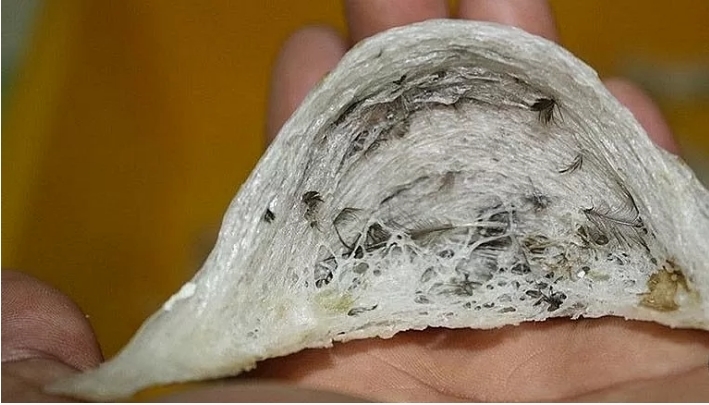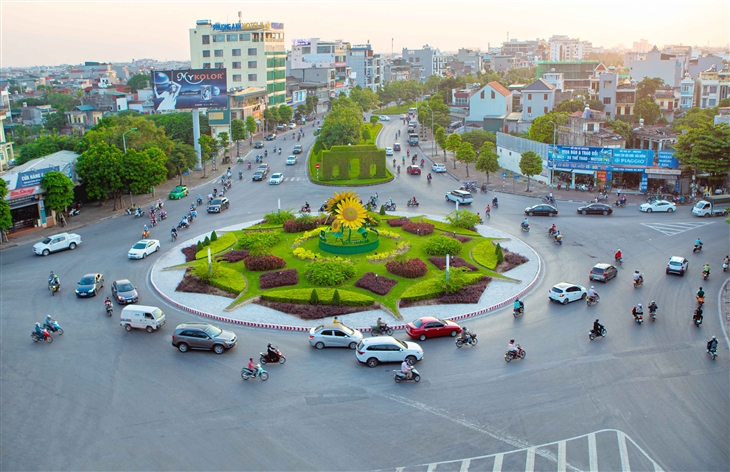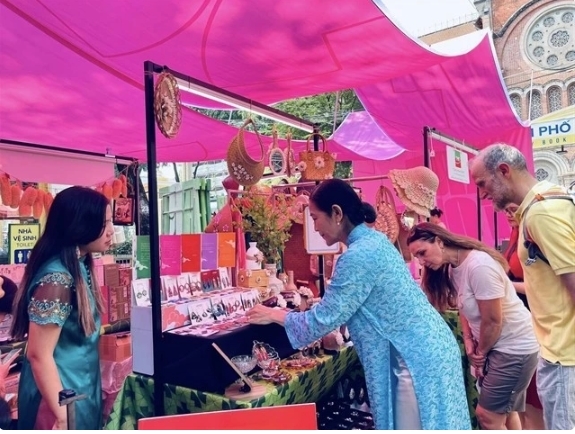Exporting raw bird's nests: More opportunities from Chinese market
Saturday, April 26,2025
AsemconnectVietnam - Vietnam has just signed a Protocol on exporting raw bird's nests to Chinese market, opening up more opportunities for the bird's nest industry in this billion-people market.
What requirements must exported raw bird's nests meet?
In mid-April 2025, Vietnamese Ministry of Agriculture and Environment and General Administration of Customs People’s Republic of China (GACC) conducted friendly consultations on quarantine, inspection and veterinary hygiene requirements for importing raw bird's nests and clean bird's nests from Vietnam to China.
To be able to officially export raw bird's nests to Chinese market, businesses must meet strict requirements of this market. Accordingly, raw bird's nest processing facilities and clean bird's nest processing facilities for export to China must be registered with GACC.
Production and processing of raw bird's nests and clean bird's nests for export to China must meet relevant regulations of Vietnam and China on quarantine, inspection and food safety. Raw bird's nests and clean bird's nests exported to China must be heat-treated to reach a core temperature of no less than 70oC and maintained for at least 3.6 seconds to ensure effective killing of avian influenza and Newcastle disease viruses.
Facilities processing raw bird's nests and clean bird's nests exported to China must have appropriate production capacity or must have equipment and tools suitable for type and quantity of products. At the same time, arrange equipment and production flowcharts reasonably to prevent cross-contamination; must have an effective management system to prevent epidemics and ensure safety and hygiene of products as well as corresponding equipment and tools.
Raw bird's nests and clean bird's nests exported to China must be packaged in new materials, in accordance with international hygiene standards. Inner and outer packaging of the product must be sealed.
Outer packaging of raw bird's nest must clearly state name and weight of product, registration number of the bird's nest farm, name and address, registration number of processing facility, storage conditions, production date and expiry date in Chinese and English. Outer packaging must clearly state "Export to People's Republic of China" and "For processing only, not for retail sale" and other relevant information.
Inner and outer packaging of clean bird's nest must clearly state name and weight of product; registration number of the bird's nest farm; name and address, registration number of processing facility; storage conditions, production date, expiry date and other relevant information in Chinese and English, in accordance with relevant laws, regulations, standards and requirements of China...
Increasing export turnover for Vietnamese bird's nest industry
China is the largest consumer market for bird's nest, accounting for 80% of the world's consumption. This is also the world's largest bird's nest import market and import volume is increasing. Previously, on November 9, 2022, Ministry of Agriculture and Rural Development of Vietnam (now Ministry of Agriculture and Environment) and General Administration of Customs of Republic of China signed a Protocol on quarantine, inspection and veterinary hygiene requirements for Vietnamese bird's nest products exported to China.
China's official permission to import raw bird's nest products from Vietnam has created many opportunities for the bird's nest farming and bird's nest production and processing industry in Vietnam.
Talking to reporters of Cong Thuong Newspaper on this issue, Mr. Nguyen The Hoa - Deputy Director of Hai Yen Nha Trang Trading Company Limited - said that signing the Protocol on exporting raw bird's nest will bring both opportunities and challenges to Vietnamese bird's nest industry. Chinese enterprises can import raw bird's nest products, then process them into clean bird's nest products and compete directly with clean bird's nest products from Vietnam in this market.
However, according to representative of this enterprise, currently only Malaysia is allowed to export raw bird's nest to Chinese market, while Indonesia and Thailand are not allowed to export raw bird's nest. Amount of Indonesian bird's nest exported is also limited. Therefore, opening market for exporting raw bird's nest will also create advantages for Vietnamese enterprises.
"Currently, clean bird's nest products are allowed to be exported to Chinese market but their competitiveness is low compared to products from Indonesia and Malaysia. Therefore, exporting raw bird's nest to Chinese market will also be an advantage that contributes to the bird's nest industry exporting more", Mr. Nguyen The Hoa informed.
To compete with Malaysian raw bird's nest products in Chinese market, Mr. Hoa said that current trend is that we have to compete on quality. Quality of raw nests depends on the breeder. Instead of chasing quantity, farmers need to focus on quality, only then can they meet market demands. As a commodity known as "white gold", to meet large demand of Chinese market, businesses need to build a sustainable raw bird's nest source system, meeting farming standards and annual inspections of bird's nest house quality. Therefore, exporting enterprises must link with farming households to form a production chain.
Signing of the Protocol has helped Vietnamese bird's nest industry open its doors to Chinese market. Remaining problem is that businesses need to proactively seek partners and customers. However, in beginning, businesses do not have customers, while in order for products to meet standards, businesses will spend a lot of money on testing and monitoring bird's nest diseases.
Therefore, exporting businesses hope that, in addition to quickly implementing requirements of the Protocol, State management agencies need to provide support for businesses. For example, supporting the costs of testing and testing in the early stages, helping businesses reduce costs and improve competitiveness in export market.
Source: Vitic/ congthuong.vn
In mid-April 2025, Vietnamese Ministry of Agriculture and Environment and General Administration of Customs People’s Republic of China (GACC) conducted friendly consultations on quarantine, inspection and veterinary hygiene requirements for importing raw bird's nests and clean bird's nests from Vietnam to China.
To be able to officially export raw bird's nests to Chinese market, businesses must meet strict requirements of this market. Accordingly, raw bird's nest processing facilities and clean bird's nest processing facilities for export to China must be registered with GACC.
Production and processing of raw bird's nests and clean bird's nests for export to China must meet relevant regulations of Vietnam and China on quarantine, inspection and food safety. Raw bird's nests and clean bird's nests exported to China must be heat-treated to reach a core temperature of no less than 70oC and maintained for at least 3.6 seconds to ensure effective killing of avian influenza and Newcastle disease viruses.
Facilities processing raw bird's nests and clean bird's nests exported to China must have appropriate production capacity or must have equipment and tools suitable for type and quantity of products. At the same time, arrange equipment and production flowcharts reasonably to prevent cross-contamination; must have an effective management system to prevent epidemics and ensure safety and hygiene of products as well as corresponding equipment and tools.
Raw bird's nests and clean bird's nests exported to China must be packaged in new materials, in accordance with international hygiene standards. Inner and outer packaging of the product must be sealed.
Outer packaging of raw bird's nest must clearly state name and weight of product, registration number of the bird's nest farm, name and address, registration number of processing facility, storage conditions, production date and expiry date in Chinese and English. Outer packaging must clearly state "Export to People's Republic of China" and "For processing only, not for retail sale" and other relevant information.
Inner and outer packaging of clean bird's nest must clearly state name and weight of product; registration number of the bird's nest farm; name and address, registration number of processing facility; storage conditions, production date, expiry date and other relevant information in Chinese and English, in accordance with relevant laws, regulations, standards and requirements of China...
Increasing export turnover for Vietnamese bird's nest industry
China is the largest consumer market for bird's nest, accounting for 80% of the world's consumption. This is also the world's largest bird's nest import market and import volume is increasing. Previously, on November 9, 2022, Ministry of Agriculture and Rural Development of Vietnam (now Ministry of Agriculture and Environment) and General Administration of Customs of Republic of China signed a Protocol on quarantine, inspection and veterinary hygiene requirements for Vietnamese bird's nest products exported to China.
China's official permission to import raw bird's nest products from Vietnam has created many opportunities for the bird's nest farming and bird's nest production and processing industry in Vietnam.
Talking to reporters of Cong Thuong Newspaper on this issue, Mr. Nguyen The Hoa - Deputy Director of Hai Yen Nha Trang Trading Company Limited - said that signing the Protocol on exporting raw bird's nest will bring both opportunities and challenges to Vietnamese bird's nest industry. Chinese enterprises can import raw bird's nest products, then process them into clean bird's nest products and compete directly with clean bird's nest products from Vietnam in this market.
However, according to representative of this enterprise, currently only Malaysia is allowed to export raw bird's nest to Chinese market, while Indonesia and Thailand are not allowed to export raw bird's nest. Amount of Indonesian bird's nest exported is also limited. Therefore, opening market for exporting raw bird's nest will also create advantages for Vietnamese enterprises.
"Currently, clean bird's nest products are allowed to be exported to Chinese market but their competitiveness is low compared to products from Indonesia and Malaysia. Therefore, exporting raw bird's nest to Chinese market will also be an advantage that contributes to the bird's nest industry exporting more", Mr. Nguyen The Hoa informed.
To compete with Malaysian raw bird's nest products in Chinese market, Mr. Hoa said that current trend is that we have to compete on quality. Quality of raw nests depends on the breeder. Instead of chasing quantity, farmers need to focus on quality, only then can they meet market demands. As a commodity known as "white gold", to meet large demand of Chinese market, businesses need to build a sustainable raw bird's nest source system, meeting farming standards and annual inspections of bird's nest house quality. Therefore, exporting enterprises must link with farming households to form a production chain.
Signing of the Protocol has helped Vietnamese bird's nest industry open its doors to Chinese market. Remaining problem is that businesses need to proactively seek partners and customers. However, in beginning, businesses do not have customers, while in order for products to meet standards, businesses will spend a lot of money on testing and monitoring bird's nest diseases.
Therefore, exporting businesses hope that, in addition to quickly implementing requirements of the Protocol, State management agencies need to provide support for businesses. For example, supporting the costs of testing and testing in the early stages, helping businesses reduce costs and improve competitiveness in export market.
Source: Vitic/ congthuong.vn
Vietnam’s imports from UK increased in first quarter of 2025
Vietnamese coffee, tea and fruit welcome opportunities from Kazakhstan
Vietnam's fruit and vegetable exports decreased in first quarter
Major commodity groups exported to South Korea in first 3 months of 2025
Vietnam Motorcycle market in Q1 2025: Strong recovery, driven by electric models and strategic innovation
More impetus, Vietnam - Laos trade towards 10 billion USD mark
Vietnam’s car market update in mid-April 2025
Vietnam’s textile market update in mid-April 2025
Fruit and vegetable exports to Singapore waiting for a breakthrough
Standardizing origin for Vietnamese goods to go further
Vietnam - Singapore import-export turnover reached nearly 10 billion SGD
DAILY: Domestic pepper prices slightly decreased on April 23, 2025
DAILY: Domestic coffee prices slightly decreased on April 23, 2025
DAILY: Domestic paddy prices increased but rice fell on April 23, 2025

Plan of Hai Duong province for a period of 2021 - 2030, ...
Organize space reasonably and harmoniously, focusing on connecting Hai Duong in common development space, actively contributing to the ...Plan of Hau Giang province in a period of 2021 - 2030, ...
Sustainable forestry development program in a period of ...

Art programme honouring Ao dai opens at HCM City Book ...
An art programme to honour and promote traditional cultural values and the beauty and grace of Ao dai has opened in Ho Chi Minh City. It ...From Hanoi to Brussels – a cross-cultural musical journey
Talented youngsters to enjoy int'l football ...
Tien Linh, Thuy Trang win Vietnam Golden Ball 2024
HCM City’s ao dai festival to feature mass folk dance with ...



